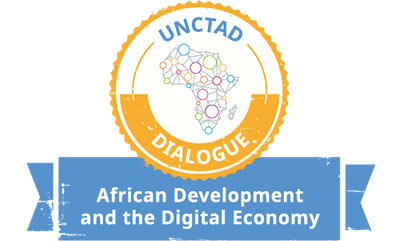Daniel Annerose, CEO and founder of Manobi

Like most economic sectors, agriculture has entered a digitalization phase that will profoundly transform the way farmers produce, agro-industries source their intake, input suppliers structure their distribution networks, banks finance it all and, in fine, how the end customer will buy. As is often the case in developing countries, this change may not be smooth, but it will likely be swift, perhaps even brutal. However appealing, an expeditious shift from the currently dominant small-scale subsistence farming, to post-digital, market-oriented agriculture shall not overlook important questions indeed, such as:
How will we ensure the honorable inclusion of smallholders in tomorrow’s agricultural value chains?
Which safeguards may best curtail the risk of future sectorial monopolies by leading global operators who can best afford digital investments today?
Will tomorrow’s digital value chains actually deliver more transparency and trustworthiness to consumers?
Will they yield benefits that are equitable and inclusive, allowing those most vulnerable to improve their livelihoods and effectively contribute to value chain efficiency?
Constant awareness of these foundational development issues is essential to pro-actively build, today, the sustainable pathways of a checked and balanced transformation, rather than following digital sirens under the dangerous assumption that digital is inherently fairer and more inclusive.
Since 2002, MANOBI pioneers the use of information technology (IT) to support the inclusion of smallholder farmers in Africa: we design, plan and operate services to a growing diversity of agricultural value-chain stakeholders and create economic and social value for all in a transparent, sincere and honorable way. Our agCelerantTM orchestration platform (www.agcelerant.com) encapsulates our keystone concept of phygital agriculture, which essentially states that proximal presence is fundamental to qualify data generated by IT, using local intelligence to generate the value that arises from strengthened trust relationships between producers, bankers, insurers, input suppliers, off-takers and processors, as well as extension services.
We acutely recognize that the increased data diversity and richness made possible with digital technologies paradoxically requires more human intelligence and intermediation to extract value in context, and that this paradox in itself is an opportunity for Africa as it carries the potential of (i) efficient and inclusive value chains, and (ii) new agricultural employment opportunities by the millions in Africa, at the nexus of info-preneurship, remote sensing, artificial intelligence, Internet of Things, software development, etc…
As usual, the choice is ours. Where investments will be made will determine where returns will be reaped. If these are in Africa, so much the better. If these remain elsewhere as has mostly been the case so far, then many convenings will keep discussing the disappointingly little impact the digitalization of agriculture has achieved on Africa’s economic and social development.
The views expressed are those of the author and do not necessarily reflect the views of UNCTAD



